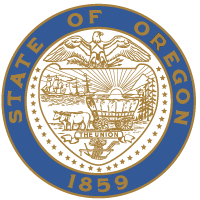LINCOLN CITY, Ore. – This week, Senator Dick Anderson (R-Lincoln City) is drafting legislation that would prohibit the state of Oregon from taxing federal economic impact payments.
“The sole purpose of federal stimulus checks was to give people help when they needed it the most,” Senator Anderson said. “There is no justification for the state to be taking some off the top. Helping people get back on their feet means helping them keep more money in their pockets.”
An estimated 870,000 Oregonians will be sending a part of their federal stimulus checks to the state government because of a reduced federal tax subtraction on state returns. Because federal subtractions are phased out at higher income levels and not applicable for low-income earners with no federal tax liability, middle-class families are hit hardest by the loophole.
“Struggling working families need our help, not for us to be taking more money from them during these challenging times,” Sen. Anderson continued. “It’s an issue of fairness. Should the state be taking money that was intended to help people? I don’t think so, and most my constituents from the coast don’t think so either.”
An average family of four would see nearly $300 of their federal stimulus money go to the state in personal income taxes, bringing over $110 million over the next few years in state revenue, according to a Legislative Revenue report. “$300 can make a big difference for families who are struggling to afford groceries, childcare, or making rent,” Senator Dick Anderson said. “While we will be dealing with the impacts of the economic devastation the pandemic has brought for years, this is a good first step. I look forward to finding more ways to help our small businesses and working families recover.”
Per state law, the earliest bills that affect state finances can go into effect is 91 days after the end of the legislative session. Thus, filers may opt to amend this year’s tax filing or apply for a tax credit on next year’s taxes. Other provisions included in the legislation would also exempt any future stimulus checks from state taxes. The bill is currently being drafted with Legislative Counsel and a bill number will follow.


